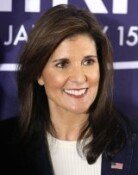Official Defends Policy Toward North
Official Defends Policy Toward North
Posted October. 14, 2006 07:01,
A high-ranking Unification Ministry official said Friday that South Koreas engagement policy must continue despite Pyongyangs purported nuclear test. The remark appears to have come amid prediction that the U.N. Security Council is likely to adopt a more lenient resolution than the draft resolutions that the U.S and Japan proposed earlier.
President Roh Moo-hyun responded immediately after Pyongyangs nuclear test on October 11 that the government would no longer be able to rely on the engagement policy. However, President Roh changed his attitude Wednesday at a luncheon with members of the National Unification Advisory Council. If the test had been carried out when relations between Seoul and Pyongyang were hostile, the people would have had to suffer from severe anxiety, President Roh said. The ruling party also demanded to adhere to the engagement policy as it is directly related to its identity.
The senior official began his remarks in an excited tone on the day. (I) feel infinite responsibility for not being able to stop Pyongyangs nuclear test. However, I will say what is true, regardless of my responsibility, he said.
He said he cannot agree with the claim that Seouls over-generosity towards Pyongyang is a failure since not a single grain of rice was given to it without preconditions. He said the Economic Cooperation and Promotion Committee agreed to provide 400,000 tons of rice to the North in June 2004, but what took place a day before it was a minister-level meeting between the two Koreas at Mount Seorak. At the meeting, the ministers of South Korea and North Korea reached an agreement to stop propaganda along the Demilitarized Zone (DMZ) and employ preventive measures against accidental conflicts in the West Sea.
Moreover, he said the following are some of the positive outcomes of the Sunshine Policy: the establishment of an English camp and LG Phillips LCD complex in Paju, a city located near the DMZ; no sudden rush of people for stocking up supplies after the nuclear test; and North Korean defectors improved perceptions about South Korea, according to surveys.
Of course, some punitive measures should be taken against Pyongyangs nuclear test. However, punitive actions alone cannot stop the North`s nuclear weapons program. We still need to give North Korea some hope even if we have to impose sanctions against it. If not, it will not engage in dialogue. Pyongyang will not just give it up its ambitions just because new sanctions are imposed and it becomes more secluded.
I dont think the stop of projects of Mount Geumgang tourism and Gaesong Industry Complex will hurt North Korea. All the required capital has been already poured into the Mount Geumgang project. North Korea is merely receiving admission fees. The situation of Gaesong project is also not much different, he said.
The two projects in North Korea have been carried out according to market principles by businessmen and it is a legitimate business practice. I feel regret over criticizing the two projects as the sources of supplying cash to Pyongyang.
The official also expressed his regret over the U.S.`s avoiding bilateral talks with North Korea since the announcement of the September 19 Joint Statement in 2005, alluding that the U.S. is responsible for North Korea`s missile launch and nuclear test.
"I urged Washington several times to lift financial sanctions against North Korea and directly talk to Pyongyang. I also tried to persuade it to have a direct dialogue, as (the U.S. government) even negotiates with hostage takers. Although I tried to convince the U.S. that bilateral talks should take place as dialogue to achieve a goal, the U.S. maintained that it was not willing to talk to the communist regime because it broke [the Geneva agreement in 1994]," the official added.
taewon_ha@donga.com







